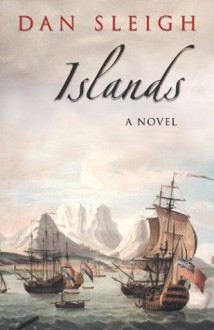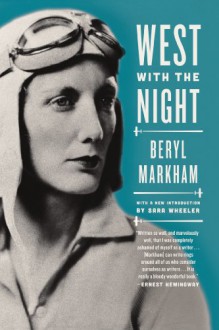
bookshelves: african-continent, colonial-overlords, one-penny-wonder, historical-fiction, epic-proportions, translation, published-2004, afr-s-africa, winter-20142015, hardback, paper-read, tbr-busting-2015, islands, lit-richer, spring-2010, autumn-2011, bloat
Recommended to ☯Bettie☯ by: Deanne
Read from September 02, 2011 to February 02, 2015
Translated from Afrikaans by André Brink.
Withdrawn from Waltham Forest Public Libraries.
Description: A major work of literature, Islands is one of the most important novels to come out of South Africa. Crammed with characters and events, staggering in the scale of its adventures, this epic tale covers the first half-century of Dutch settlement at the Cape.
Opening: Seven of us, or at least seven, carried in our hearts the same woman, from before her birth until after her death.
 Johan Anthoniszoon "Jan" van Riebeeck (April 21, 1619, Culemborg, Gelderland – January 18, 1677) was a Dutch colonial administrator and founder of Cape Town.
Johan Anthoniszoon "Jan" van Riebeeck (April 21, 1619, Culemborg, Gelderland – January 18, 1677) was a Dutch colonial administrator and founder of Cape Town.
 Feb 2015: It took me four years to get this one done and dusted. I would have preferred a straight forward history, as it was I had to wheedle out nuggets of information in much the mode of river gold-siever.
Feb 2015: It took me four years to get this one done and dusted. I would have preferred a straight forward history, as it was I had to wheedle out nuggets of information in much the mode of river gold-siever.
 Robben Island
Robben Island

Withdrawn from Waltham Forest Public Libraries.
Description: A major work of literature, Islands is one of the most important novels to come out of South Africa. Crammed with characters and events, staggering in the scale of its adventures, this epic tale covers the first half-century of Dutch settlement at the Cape.
Opening: Seven of us, or at least seven, carried in our hearts the same woman, from before her birth until after her death.
 Johan Anthoniszoon "Jan" van Riebeeck (April 21, 1619, Culemborg, Gelderland – January 18, 1677) was a Dutch colonial administrator and founder of Cape Town.
Johan Anthoniszoon "Jan" van Riebeeck (April 21, 1619, Culemborg, Gelderland – January 18, 1677) was a Dutch colonial administrator and founder of Cape Town. Feb 2015: It took me four years to get this one done and dusted. I would have preferred a straight forward history, as it was I had to wheedle out nuggets of information in much the mode of river gold-siever.
Feb 2015: It took me four years to get this one done and dusted. I would have preferred a straight forward history, as it was I had to wheedle out nuggets of information in much the mode of river gold-siever. Pieter van Meerhof was from Copenhagen, Denmark. He arrived at the Cape on the ship Princess van Royael. He was an adventurer, traveller and surgeon. He also served as the superintendent on Robben Island. He went on th slaving ship Westwout. He got killed on this slaving expedition at Antogil Bay in Madagascar before 27 February 1668. This ship arrived back at the Cape on 30 September 1668. Meerhoffskasteel was named after him.
He got married to the khoikhoi Eva Krotoa on 26 April 1664. She was baptised as an adult at the Fort on 3 May 1662. She was raised in the Governor van Riebeeck"s home. - Source
 Robben Island
Robben Island

 Log in with Facebook
Log in with Facebook 




 MUTHAIGA COUNTRY CLUB
MUTHAIGA COUNTRY CLUB Denys Finch Hatton
Denys Finch Hatton How quick this reads; it is over almost before it has begun. The typeset and size is easy on the eyes.
How quick this reads; it is over almost before it has begun. The typeset and size is easy on the eyes. 



 The Rainbow (left) unsuccessfully engaging John Ward's flagship
The Rainbow (left) unsuccessfully engaging John Ward's flagship Europeans enslaved by North African captors - two mosques in the background.
Europeans enslaved by North African captors - two mosques in the background.








